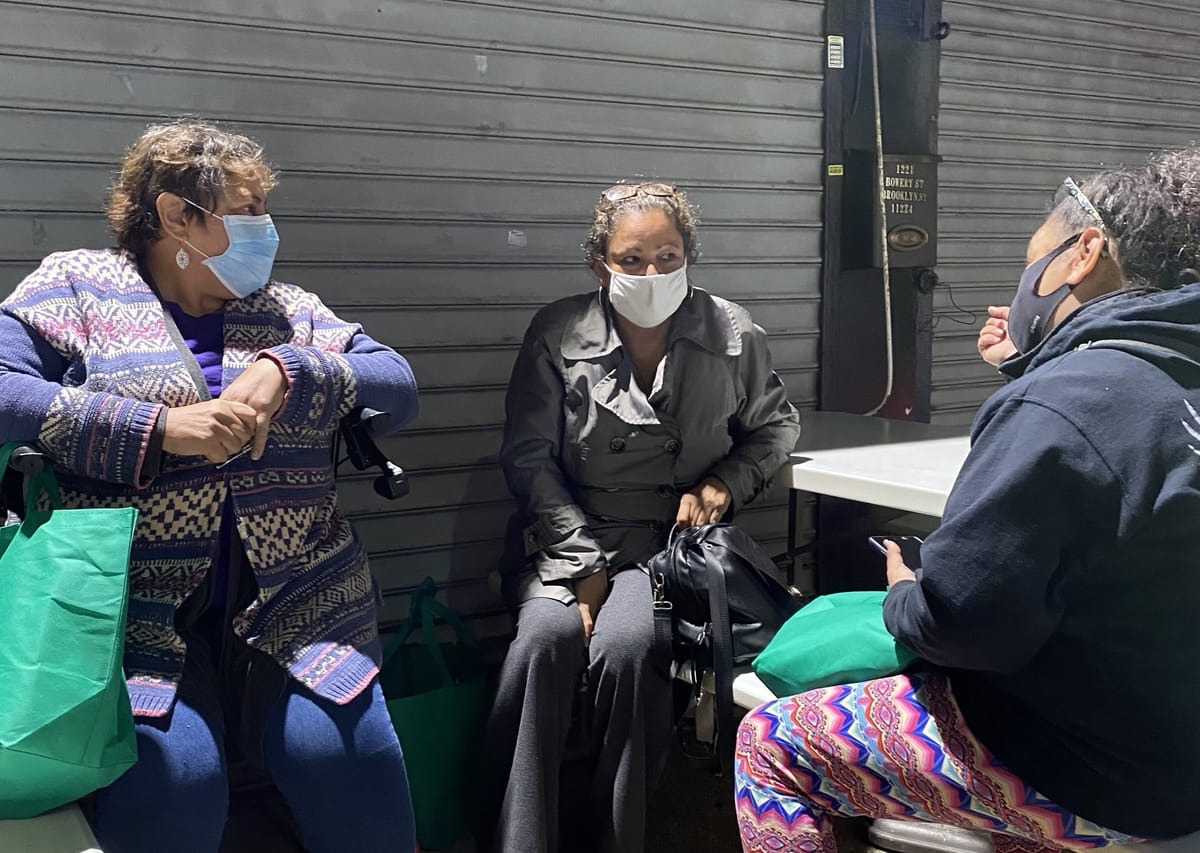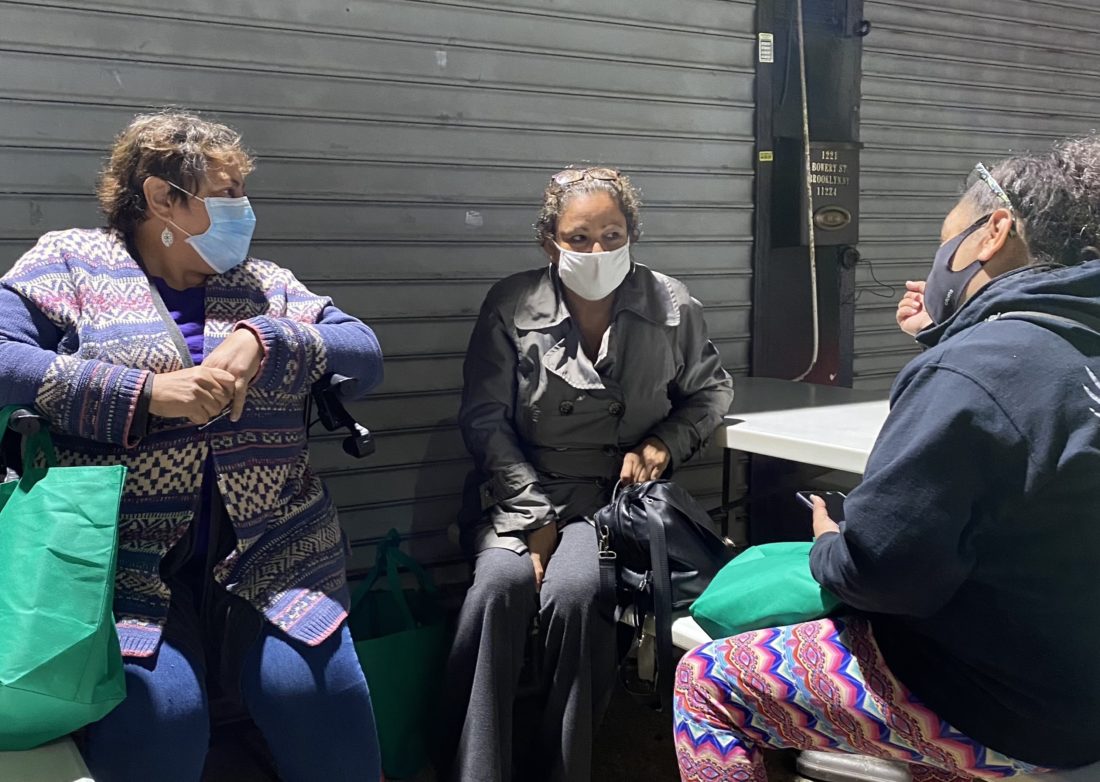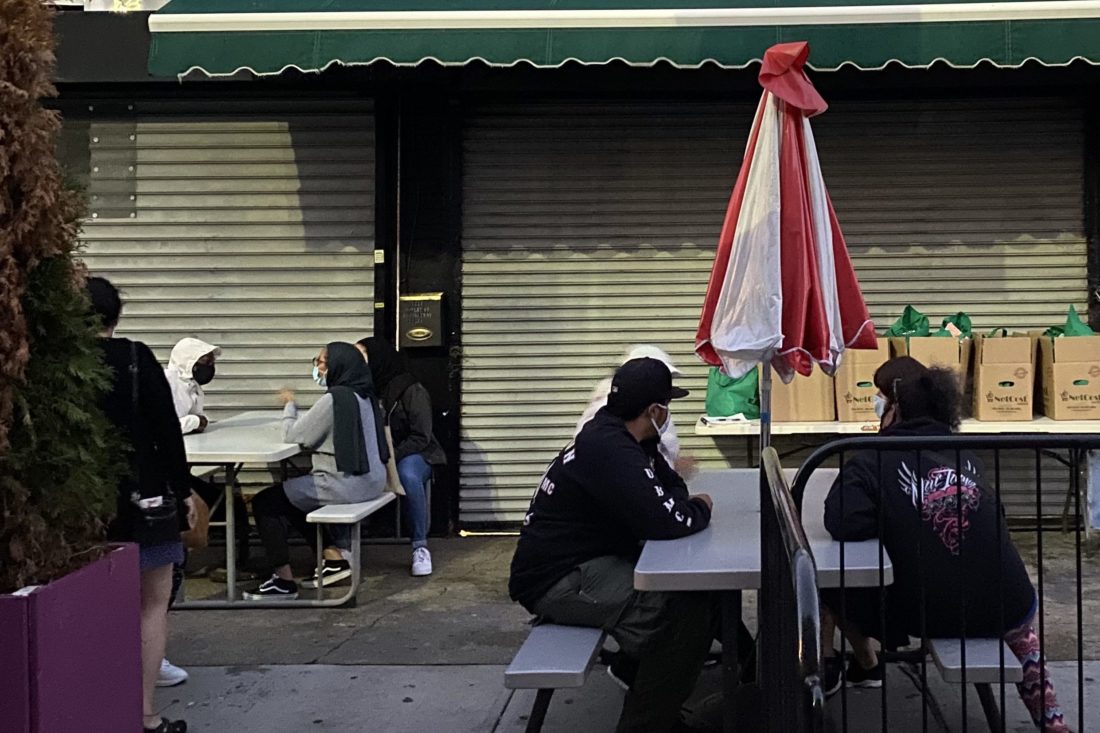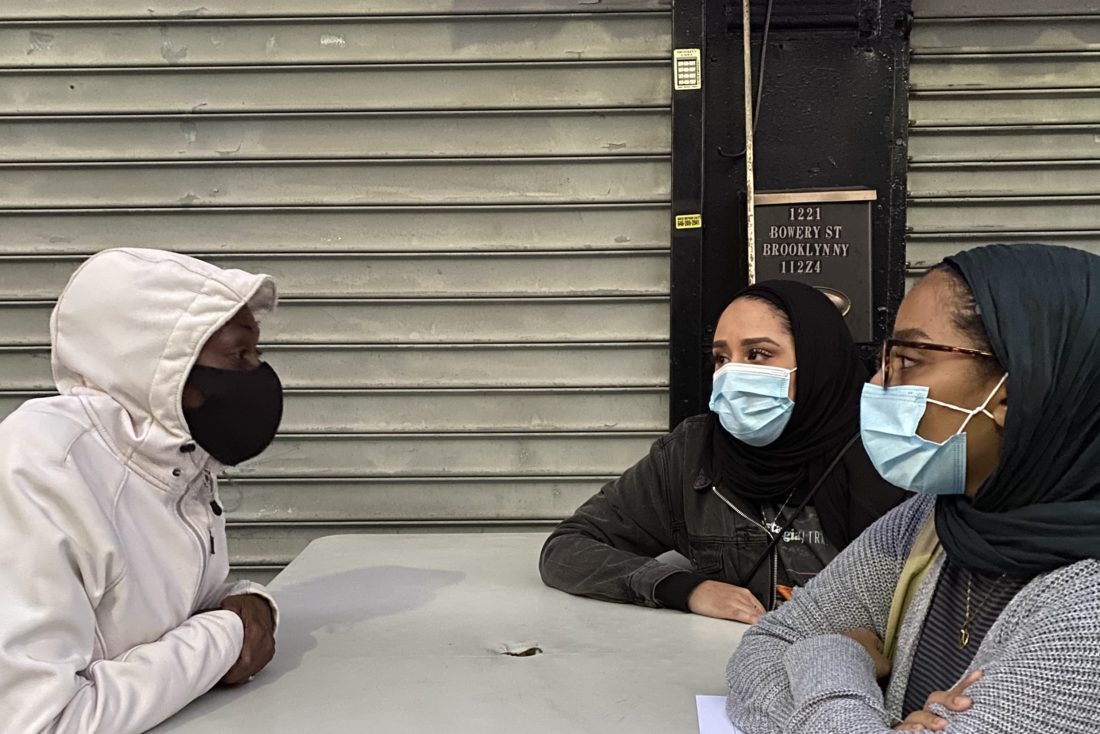Human Library in Coney Island – Talking About Trauma


On Tuesday evening, a small group of Coney Island and Gravesend residents met outside the Unknown Bikers Club located on Bowery Street to foster tolerance and understanding. Inspired by The Human Library events in Denmark, organizers Reyna Gobel and Steven Patzer hoped that neighbors would challenge their stereotypes by talking to each other.
The pair learned about the Human Library through Gobel’s friend, Nora Savosnick, 24, a photojournalist, and a Holocaust survivor’s granddaughter. Savosnick was doing similar work in Norway through a government partnership with synagogues called Jediske Veivisere, which loosely translates into “Jewish guide.” The program responded to the spike in anti-Semitism, and Savosnick was employed by The Jewish Museum in Oslo to have conversations with high school students who had never met a Jewish person.
“I really believe in the power of this, ” says Savosnick, who is also traveling around the U.S. covering the election for a Norwegian paper called Aftenposten. “It really creates tolerance, and this is exactly what this country needs right now.” Savosnick said that projects like this help us acknowledge our prejudices and bias so we can do the work of changing or releasing our biases altogether.
Gobel and Patzer, 23, who is running to represent Coney Island in City Council, wanted to offer a space where people from different community backgrounds could come together and learn from each other, especially in the light of hate crimes nearby – a temple was vandalized in September, and an 89-year-old Asian woman was set on fire in nearby Bensonhurst in August.
“It’s very easy to assume things about people if you’ve never met them, and we’re in such a diverse community, and there are so many people who don’t talk to each other,” says Gobel, a journalist who also works on Patzer’s campaign.

“Speed dating for trauma” is a questionable pitch for an event in a city under pandemic restrictions; however, talking about trauma did not seem to overwhelm the exchanges made between participants. From ages 12 to 62, everyone had a story to share, ranging from survivors of domestic abuse, and survivors of sexual assault, to family members who were victims of gun violence.
In keeping with the city’s COVID-19 restrictions, the 18 or so participants in attendance wore masks and kept their distance. They rotated among five tables and were given a loose five minutes to speak with each other before they had to change places to talk to someone else. Expressions varied from furrowed brows to smiles and laughter.

“It was something that really intrigued me, ” says Azza Bushra, 24, raised in Coney Island and whose family is from Sudan. “It’s really hard to relate to people if you’re ignorant about the things that they have been going through. You get a little piece of what it is like to be them.”
Azza, who was there with her sister Onab Bushra, 25, spoke about her experience as a Black Muslim woman and how those two identities do not intersect for a lot of people. “I’ll say to people ‘I’m Muslim,’ and people will say, ‘Oh, I thought you were Black?’ Why can’t I be both? It’s something I have to clear up constantly for people.”
The human library event went into the early evening. One Coney Island resident relayed that she would stay in touch with someone that she spoke to that night.
Maria Navarro, 62, is the daughter of Puerto Rican parents who came to New York in the late 50s. She grew up and has lived in Coney Island for sixty-one years and went to the event after being invited by Gobel.
“I thought this [human library] was awesome. It’s awesome. If I don’t speak about it [domestic violence], you would have never known what I’ve gone through. I don’t know what your story is, I don’t know what her story is, but there is a story to everyone.”



